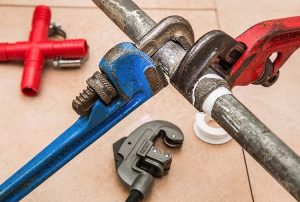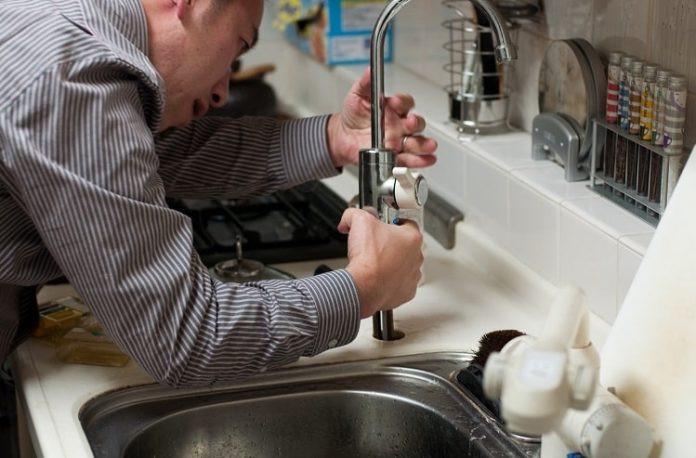There’s nothing more exhilarating than finally being able to afford your own home and becoming a bona fide homeowner in Adelaide. With the financial climate of the world today, it’s a commendable feat to be able to afford a property and start planting roots with your family. However, you also have to know that owning a house comes with the responsibility of maintaining it as well – from the roofing to the lawn, interior, and most importantly, plumbing.
That’s right. As a homeowner, making sure that your house is well-maintained not only on the outside but also everything that goes on internally is a must. This is especially true if you are not the first owner of the property.
Depending on how dated your house is, there can be many underlying issues that are not visible to the naked eye. Thus, it is imperative that you conduct a thorough check of the inner workings of the house as soon as it is handed over to you. Doing so can help you plan and schedule maintenance work according to priority.
One such area or part of the home that is easily overlooked is plumbing. After all, you don’t really go out of your way to check the pipes as soon as you move into a new property, or even during the process of acquiring it.
However, be warned: This is one of those parts of the house that you don’t ever want to break down without prior notice. Otherwise, all hell will break loose. Seriously.
So, before any of that happens, let’s discuss how the plumbing industry works in Adelaide and what responsibilities you have as a homeowner to ensure that your plumbing is well-maintained.
Navigating the Adelaide Plumbing Landscape: What Every Homeowner Should Know
When it comes to plumbing, one thing you should know is that prevention is always better than cure. Yes, much like any other part of the house, your water pipes, sink and bathroom drainages, and other plumbing-associated areas, are not immune to damage – especially in more frequented areas of the house like the kitchen or the bathroom. Your home’s plumbing will eventually outlive its usable life and you will have to replace or renovate certain parts due to regular tear and wear.
However, what’s not normal is when your plumbing starts having these issues a little too early than expected (like this). Often, a well-installed plumbing system can last for years and years, even decades, with proper maintenance.
So if it’s starting to act funny after just a couple years of living in your property full-time, then it can only be one of two reasons: (1) There is something fundamentally wrong with the plumbing system and how the lines were laid out from the very beginning, or (2) you have paid zero attention to ongoing maintenance.
Unfortunately, many homeowners in Adelaide only realise the importance of ongoing maintenance until it’s too late. While there are many local plumbing companies that can readily take charge of maintenance for your house’s pipeworks, you still need to come forward and seek out their help first. In other words, the initiative should always start with the property owner.
If it’s a tad too late to start thinking about maintenance and you are already experiencing plumbing issues inside your home, then what you need to do is skip a few steps and fast forward to troubleshooting the problem. Below, we’ve listed some of the steps you should take when dealing with plumbing issues inside your house.
Dealing with Plumbing Issues in Adelaide

There’s probably nothing more frustrating than having plumbing problems in your home, especially in the bathroom or kitchen. You know what they say, take away electricity and you’ll survive. You can find ways to work around it – like lighting a candle or using a generator. But take away decent plumbing? Now, that’s an instant recipe for disaster.
If you suspect or know for a fact that you’re experiencing plumbing issues inside your home, here are the steps that you should take:
1. Identify The Problem Areas
The first thing you need to do is to check the immediate issue and the surrounding areas. For all you know, you might be looking at a bigger plumbing issue than a simple clogged drain. It’s important to identify the true cause of the problem to execute the right solution. If you just fix the problem on the surface, it can potentially recur repeatedly until you fix the real problem. So when you suspect that there can be more to the plumbing issue than what meets the eye, do a thorough check or ask plumbers for help.
2. Assess The Gravity Of The Issue
Once you’ve identified the extent of the damage or problem, next you have to figure out how fast you need to address the situation based on its severity. Can it wait until the weekend? Or do you need to have someone over in the next hour? When it comes to plumbing issues, the sooner it’s addressed, the better. But if you need to buy yourself some time for whatever reason, check if the damage is manageable enough that it can wait until you can have it professionally looked at.
3. Try Simple Troubleshooting Steps
Sometimes, plumbing issues can cause you great alarm but can actually be fixed with easy, DIY home remedies. The key is to always catch what’s causing the damage early. Here are some common plumbing issues and how you can resolve them:
● Clogged Drains – Probably the most common of all common issues but aren’t always so serious. It could just be a build-up of stubborn gunk and not a big blockage. If the clog has only been showing recently, a simple home solution that you can whip up from your pantry might do the trick. Dissolve baking soda and vinegar, pour it over the drain and let it sit overnight. If that doesn’t take care of the problem, there are also many chemical drain solutions available in the market so find a brand you trust and carefully follow the instructions.
● Leaky Faucets – A leaky faucet may not seem like a big deal at first but wait until your water bill arrives. These continuous drops can really pile on the water bills – not to mention, that it’s a ticking time bomb. Leaky faucets are a sign that something is not working right in your plumbing system and may later on cause a bigger problem. Fortunately, these are also the easiest to fix with a simple replacement of the washer ring that naturally deteriorates over time. If that doesn’t resolve the issue, the underlying problem might be bigger so best leave the work to experts.
● Running Toilets – Same as with leaky faucets, this one leaks money from your pocket too. A running toilet can easily waste a couple hundred gallons of water a day which means higher water bills as well. When your toilet runs water nonstop, it’s usually the case of worn out flappers or flush valves so the best you can do is replace them.
● Low Water Pressure – In other words, your water supply is compromised and can’t get to other parts of the house where you need it. Low water pressure is often caused by pipe blockages that may have built up overtime. It may not be easy to spot where exactly the block is but if you can, then pouring drain solution (homemade or store-bought) and letting it sit for a few days to dissolve the gunk should remove the blockage. If the water pressure isn’t restored even then, there could be a leak somewhere you don’t know about which is why water can’t come up where it’s supposed to. In this case, calling the experts over to take a look is your best solution.
4. Call The Professionals
As mentioned, if your initial DIY attempts don’t work and the problem seems to be escalating, it’s time to get professional help. And again, the sooner you can, the better. Plumbing issues can easily catch you off guard and worsen in a short period of time. What you can do is switch off the main water line first, call the professionals, and see if they can come down to your address to get your pipes checked as soon as possible.

